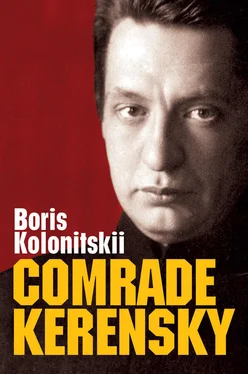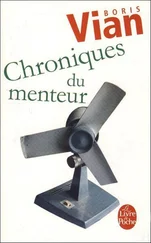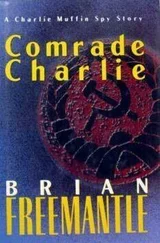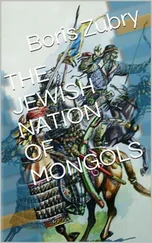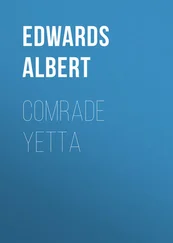9 9. Iurii Tokarev, Narodnoe pravotvorchestvo nakanune Velikoi Oktiabr’skoi sotsialisticheskoi revoliutsii (Leningrad: Nauka, 1965).
10 10. Nina Tumarkin, Lenin Lives! The Lenin Cult in Soviet Russia (Cambridge, MA: Harvard University Press, 1983); Benno Ennker, Die Anfänge des Leninkults in der Sowjetunion (Cologne: Böhlau, 1997); Olga Velikanova, Making of an Idol: On Uses of Lenin (Göttingen: Muster-Schmidt, 1996).
11 11. Jan Plamper, The Stalin Cult: A Study in the Alchemy of Power (New Haven, CT: Yale University Press, 2012).
12 12. Vasilii Maklakov, Iz vospominanii (New York: Chekhov, 1954).
13 13. Petrogradskii voenno-revoliutsionnyi komitet: Dokumenty i materialy, ed. Dmitrii Chugaev et al. (Moscow: Nauka, 1967), vol. 3, pp. 194, 616.
14 14. A brief list of Kerensky’s books: Delo Kornilova (Moscow: Zadruga, 1918); Gatchina (Iz vospominanii) (Moscow: Knigopechatnik, 1922); Izdaleka: Sbornik statei (1920–1921 g.) (Paris: Povolotskii, 1922); The Catastrophe: Kerensky’s Own Story of the Russian Revolution (New York: Appleton, 1927); La Révolution russe (1917) (Paris: Payot, 1928); The Crucifixion of Liberty (London: Barker, 1934); Russia and History’s Turning Point (New York: Duell, Sloan & Pearce, 1965).
15 15. Vitalii Startsev, Krakh Kerenshchiny (Leningrad: Nauka, 1982). Startsev wrote other publications about Kerenskii: ‘Begstvo Kerenskogo’, Voprosy istorii, no. 11 (1966): 204–6; ‘Kerenskii: Sharzh i lichnost’’, Dialog, no. 16 (1990); Russkoe politicheskoe masonstvo nachala XX v. (St Petersburg: Tret’ia Rossiia, 1996); Tainy russkikh masonov (St Petersburg: D.A.R.K., 2004). This last book is a supplemented edition of Russkoe politicheskoe masonstvo.
16 16. Gennadiy Sobolev, Revoliutsionnoe soznanie rabochikh i soldat Petrograda v 1917 g. Period dvoevlastiia (Leningrad: Nauka, 1973). Sobolev also compiled a collection of primary materials on Kerensky’s political career titled Aleksandr Kerenskii: liubov’ i nenavist’ revoliutsii: dnevniki, stat’i, ocherki, vospominaniia sovremennikov (Cheboksary: Chuvashskii universitet, 1993).
17 17. Richard Abraham, Alexander Kerensky: The First Love of the Revolution (London: Sidgwick & Jackson, 1987).
18 18. Genrikh Ioffe, Semnadtsatyi god: Lenin, Kerenskii, Kornilov (Moscow: Nauka, 1995).
19 19. Mikhail Basmanov, Grigorii Gerasimenko and Krill Gusev, Aleksandr Fedorovich Kerenskii (Saratovskaia gosudarsvennaia ekonomicheskaia akademiia, 1996); Vladimir Fediuk, Kerenskii (Moscow: Molodaia gvardiia, 2009); Stanislav Tiutiukin, Aleksandr Kerenskii: Stranitsy politicheskoi biografii (1905–1917 gg.) (Moscow: ROSSPEN, 2012). Andrei Nikolaev published an article about a 1917 interview in which Kerenskii described the February Revolution: Andrei Nikolaev, ‘A. F. Kerenskii o Fevral’skoi revoliutsii’, Klio, no. 3 (2004): 108–16. The latest publication of this primary source is in Semion Lyandres, ed., The Fall of Tsarism: Untold Stories of the February 1917 Revolution (Oxford: Oxford University Press, 2013). Aleksandr Rabinovich, ‘A. F. Kerenskii i V.I. Lenin kak politicheskie lidery perioda krizisa’, in Politicheskaia istoriia Rossii XX veka. K 80-letiiu professora Vitaliia Ivanovicha Startseva: Sbornik nauchnykh trudov (St Petersburg: Rossiiskii Gosudarstvennyi Universitet imeni A. I. Gertsena, 2011), pp. 209–16.
20 20. Andrei Golikov, ‘Fenomen Kerenskogo’, Otechestvennaia istoriia, no. 5 (1992), pp. 60–73. See also letters of the young Kerensky, discovered in the archives and prepared for pubication by Golikov: ‘“… Budushchii artist Imperatorskikh teatrov”: Pis’ma Aleksandra Kerenskogo roditeliam’, Istochnik: Dokumenty russkoi istorii [Supplement to Rodina, vol. 3 (1994), pp. 4–22].
21 21. Sobolev, Revoliutsionnoe soznanie rabochikh i soldat Petrograda.
22 22. Richard S. Wortman, Scenarios of Power: Myth and Ceremony in Russian Monarchy, 2 vols (Princeton, NJ: Princeton University Press, 1995).
23 23. Boris Kolonitskii, ‘Tragicheskaia erotika’: Obrazy imperatorskoi sem’i v gody Pervoi mirovoi voiny (Moscow: Novoe literaturnoe obozrenie, 2010).
24 24. There is frequent mention of rumours in Valentin Diakin’s authoritative, and in many respects unrivalled, study of the political elite during the First World War. See Valentin Diakin, Russkaia burzhuaziia i tsarizm v gody Pervoi mirovoi voiny (1914–1915) (Leningrad: Nauka, 1967), pp. 99, 112, 115, 116 and elsewhere. Diakin points out many instances where rumour affected the political situation.
25 25. At sessions of the Provisional Government Chernov would write articles for the party newspaper, despite being implored by his ally, the Menshevik Irakliy Tsereteli, to take part in the discussion of important matters. Oliver Radkey, the historian of the Socialist Revolutionaries, observes that, instead of drafting laws, the party’s leader was writing newspaper articles. Oliver Radkey, The Agrarian Foes of Bolshevism: Promise and Default of the Russian Socialist Revolutionaries, February to October, 1917 (New York: Columbia University Press, 1958), pp. 332, 333–4. This was the style of political leadership with which Chernov was familiar.
26 26. In her important publication, Olga Porshneva does not take this sufficiently into account when studying these letters as a source for reconstructing the thinking of the humbler members of society. See Ol’ga Porshneva, Mentalitet i sotsial’noe povedenie rabochikh, krest’ian i soldat Rossii v period Pervoi mirovoi voiny (1914– mart 1918 g.) (Ekaterinburg: Ural’skii gosudarstvennyi universitet imeni A. M. Gor’kogo, 2000).
27 27. Fediuk, Kerenskii, p. 144.
28 28. On surveys of the press created by various departments, see Irina Zhdanova, ‘“Vek propagandy”: Upravlenie informatsiei v usloviiakh voiny i revoliutsii v Rossii v marte–oktiabre 1917 g.’, Otechestvennaia istoriia, no. 3 (2008): 129–36. Kerenskii carefully studied such surveys. See ibid., p. 135.
29 29. On the basis of documentation in the Hoover Institute of Stanford University, Kerensky published, jointly with Robert Browder, The Russian Provisional Government, 1917: Documents, 3 vols, ed. Robert P. Browder and Alexander F. Kerensky (Stanford, CA: Stanford University Press, 1961).
30 30. Portraits of Kerensky were printed most frequently in the periodical press. Thus, in 1917 his portrait appeared in no fewer than thirty-two magazines, and twelve printed it in two or more issues. This compares with portraits of Milyukov, printed that year in seventeen magazines, Breshko-Breshkovskaya in sixteen, Guchkov in fifteen, Rodzianko in thirteen, Chernov in twelve, Plekhanov in eight and Lenin in six. See Russkie portrety, 1917–1918 gg., ed. Matvei Fleer (Petrograd: [Gosudarstvennoe izdatel’stvo], 1921; repr. Moscow: Izdatel’stvo V.Iu. Sekachev, 2010). Fleer did not manage to encompass all the periodicals of the time, but he did take in the main illustrated magazines.
31 31. I have examined aspects of Kerensky’s political biography during the whole of 1917 in a number of publications: Boris Kolonitskii, ‘A. F. Kerenskii i Merezhkovskie’, Literaturnoe obozrenie, no. 3 (1991): 98–106; ‘Kerensky’, in Critical Companion to the Russian Revolution, ed. Edward Acton, Vladimir Cherniaev and William Rosenberg (London: Hodder Arnold, 1997), pp. 138–49; ‘Kul’t A. F. Kerenskogo: Obrazy revoliutsionnoi vlasti’, Soviet and Post-Soviet Review, 24/1–2 (1997): 43–66; ‘Britanskie missii i A. F. Kerenskii (mart–oktiabr’ 1917 goda)’, in Rossiia v XIX–XX vv.: Sbornik statei k 70-letiiu R. S. Ganelina, ed. Aleksandr Fursenko (St Petersburg: Dmitrii Bulanin, 1998), pp. 67–76; ‘Kul’t A. F. Kerenskogo: Obrazy revoliutsionnoi vlasti’, Otechestvennaia istoriia, no. 4 (1999): 105–8; ‘“We” and “I”: Alexander Kerensky in His Speeches’, in Autobiographical Practices in Russia, ed. Jochen Hellbeck and Klaus Heller (Göttingen: [Vandenhoek & Ruprecht Unipress], 2004), pp. 179–96; ‘Aleksandr Fedorovich Kerenskii kak “zhertva evreev” i “evrei”’, in Jews and Slavs, vol. 17: The Russian Word in the Land of Israel, the Jewish Word in Russia (Jerusalem, 2006), pp. 241–53; ‘A. F. Kerenskii kak “pervyi grazhdanin”’, in Fakty i znaki: Issledovaniia po semiotike istorii, ed. Boris Uspenskii and Fedor Uspenskii, vyp. 2, Moscow, 2010, pp. 134–49; ‘Feminizatsiia obraza A. F. Kerenskogo i politicheskaia izoliatsiia Vremennogo pravitel’stva osen’iu 1917 goda’, in Mezhvuzovskaia nauchnaia konferentsiia ‘Russkaia revoliutsiia 1917 goda: Problemy istorii i istoriografii’: Sbornik dokladov (St Petersburg: Gosudarstvennyi elektrotekhnicheskii universitet, 2013), pp. 93–103; ‘Russian Leaders of the Great War and Revolutionary Era in Representations and Rumors’, in Russian Culture in War and Revolution, 1914–22, ed. Murray Frame, Boris Kolonitskii, Steven G. Marks and Melissa K. Stockdale (Bloomington, IN: Slavica, 2014), book 1, pp. 27–54; etc.
Читать дальше
